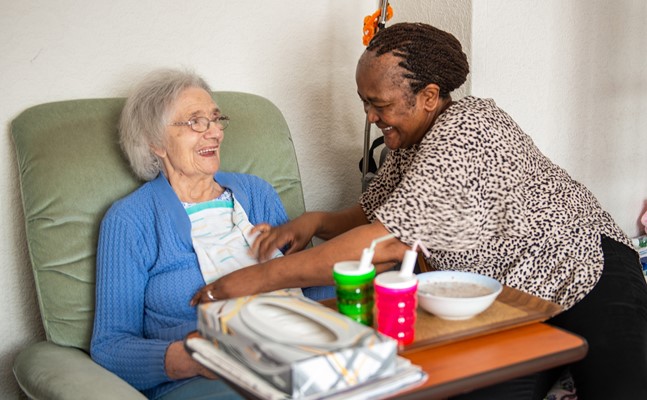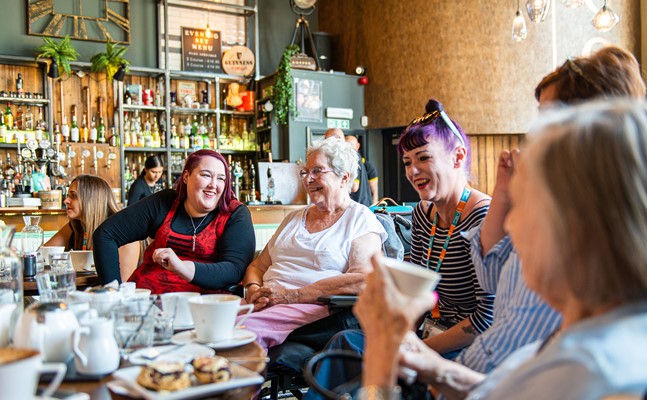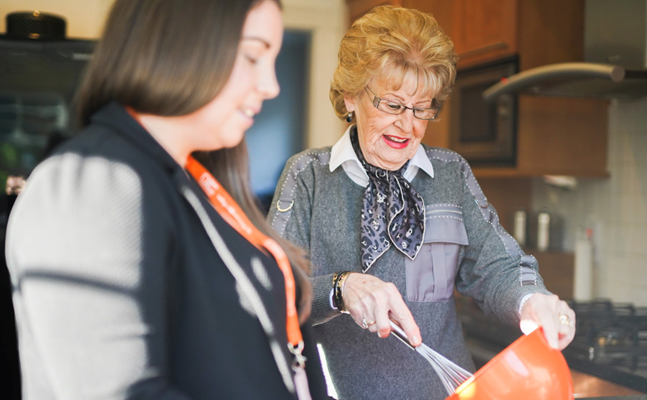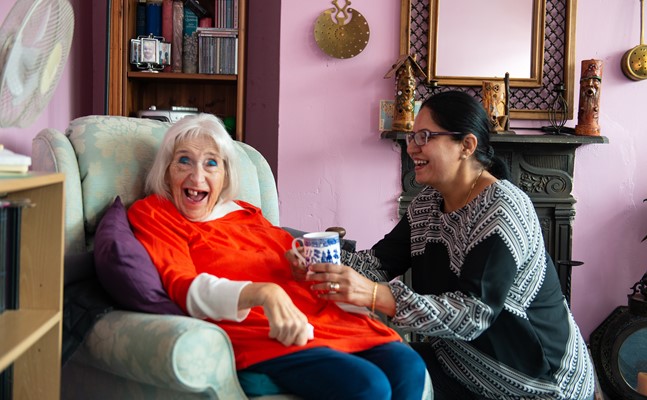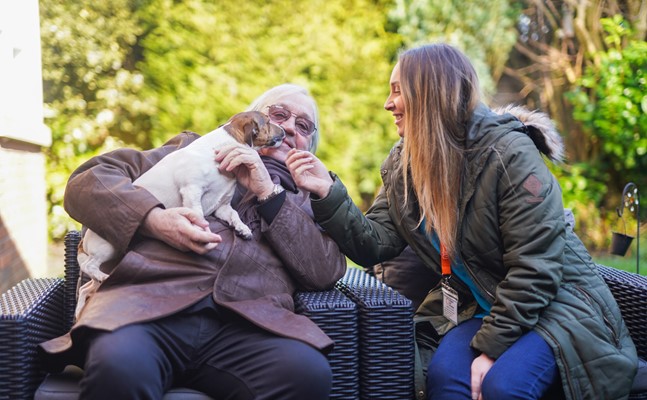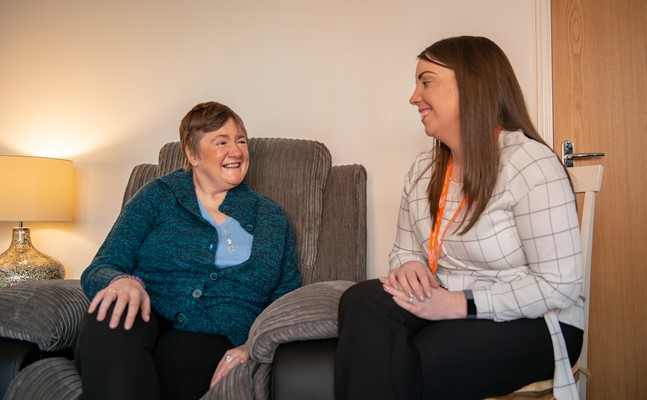Living Well With Dementia: How to Recognise Dementia Symptoms & Care For People with Dementia

- National Site
- Information & Support
- Dementia Info and Support Guide
Dementia is not a specific disease but a word to describe a range of impairments related to cognitive ability. Dementia can affect a person’s ability to remember, think, make decisions or communicate.
However, people with dementia can still live fulfilling lives, surrounded by those they love. This guide summarises the main things you need to know about caring for and supporting someone with dementia.
For further guidance on recognising the symptoms of dementia, take a look at our dementia care services. Our team can help you to take care of a loved one, or support you as a family carer.
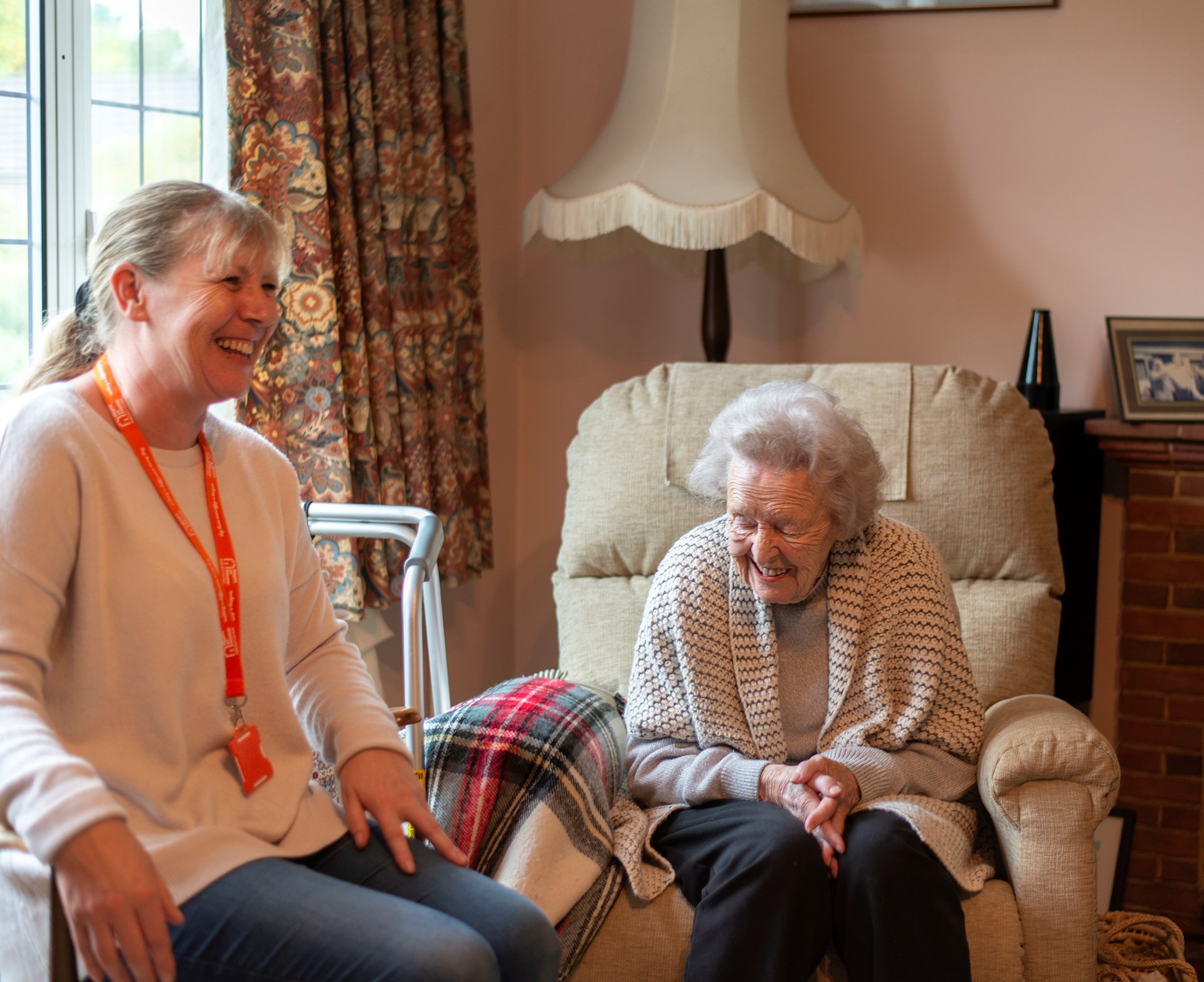
What are the different types of dementia?
Dementia isn’t a one size fits all diagnosis. The symptoms of dementia are commonly shared with many brain disorders.
There are many different types of dementia, including:
|
|
All types of dementia will deteriorate over time, at varying rates. Any dementia diagnosis can affect both the person with dementia and those around them. However, spotting symptoms early and keeping your brain active can help to slow the progression.

What are the symptoms of dementia to look out for?
The symptoms of dementia will vary in every unique circumstance. However, there are some common signs and symptoms across all types of dementia:
Changes in cognition
Keep an eye out for any changes in the way that someone thinks or communicates, including:
- Memory loss
- Difficulty communicating
- Difficulty reasoning
- Difficulty problem solving
- Difficulty with motor functions
- Confusion and disorientation
Changes in psychological abilities
People living with dementia may also experience psychological changes as their dementia progresses. Look for uncharacteristic symptoms like:
- Anxiety
- Depression
- Mood changes
- Inappropriate behaviours
- Paranoia
- Anger
- Hallucinations
If you notice any of these changes in a loved one, contact a GP or health professional for their advice. Remember: people can develop dementia at any age.
Eating and drinking with dementia
As the stages of dementia progress, people can forget to eat, drink and take care of themselves. These behaviour changes inevitably lead to weight loss and other health issues. On the other hand, some people may actually forget that they have already eaten. In turn, this can cause overeating and potentially risky weight gain.
Both professional and family Carers should ensure that the person with dementia consumes enough food and drink for their body. Our CareGivers have offered expert advice on the best ways combat eating issues associated with dementia:
Dementia in the community
Living with dementia doesn’t mean that you have to miss out on doing the things that you enjoy. Many communities strive to be dementia-friendly and will even run specific dementia activities.
Many local cinemas offer dementia-friendly screenings of the latest releases and community leisure centres often run swimming sessions for those with dementia too.
Our partners at Alzheimer’s Society run a regular event called ‘Singing for the Brain’. These sessions bring together people living with dementia and invite them to sing songs together.
Alzheimer’s Society also runs dementia friendly cafes all around the country. These cafes are a safe space for people with dementia and their Carers to access support and have a friendly chat.
Activities for people with dementia
Beyond organised community sessions, there are plenty of dementia-friendly activities to choose from. If possible, we recommend helping people with dementia to get out and about. Outdoor activities may involve heading out for a walk, sitting outdoors at a coffee shop, or doing a bit of gardening. Fresh air is great for the brain!
Exercise and brain training games are also great for stimulating cognitive ability. Our CareGivers can work with families to identify activities aimed at the right level for our Clients.
When to seek specialist care for dementia
As dementia increasingly affects the brain and body, it might be a good idea to seek additional support for your loved ones. Arranging dementia care at home can offer peace of mind as well as much-needed respite for friends and family
Many people living with dementia benefit from remaining in their own home and familiar surroundings. There is no right or wrong time to look into dementia-related homecare. Host an open discussion with your loved ones, considering needs like:
- Does our loved one need help with eating and drinking each day?
- Do we need support as family Carers?
- Does our loved one need management of medication?
- Does the home need modification to support our loved ones abilities?
